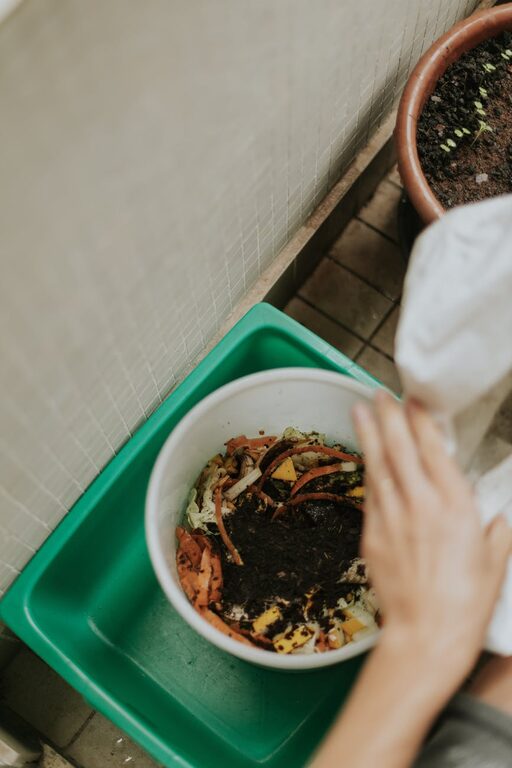Composting at home is a rewarding and eco-friendly way to reduce waste while creating nutrient-rich soil for your garden. Whether you have a spacious backyard or a small balcony, composting can fit into your lifestyle with just a few simple steps. This guide will introduce you to beginner tips that make composting easy and effective.
What is Composting?
Composting is the natural process of recycling organic material—like food scraps and yard waste—into a rich soil amendment known as compost. Instead of sending these materials to a landfill, where they produce greenhouse gases, composting allows them to break down in a controlled environment. The end product improves soil health and helps plants thrive.
Benefits of Composting at Home
– Reduces household waste: Composting cuts down the amount of trash, saving space in landfills.
– Enhances soil: Compost adds vital nutrients and improves soil structure.
– Saves money: Using compost reduces the need for chemical fertilizers.
– Supports the environment: Composting lowers methane emissions and promotes sustainability.
Getting Started: Choose Your Composting Method
Before you begin, decide how you will compost based on your space and preferences.
1. Outdoor Compost Bin
Ideal for those with yard space, outdoor bins can hold large amounts of organic waste. You can buy a bin or easily build one from wood or wire mesh.
2. Compost Pile
Simply pile organic waste in a corner of your garden. It’s low-cost and effective but may take longer to decompose and could attract pests if not managed well.
3. Vermicomposting (Worm Composting)
Great for indoor or small spaces, vermicomposting uses worms to break down kitchen scraps quickly. This method produces “worm castings,” a powerful fertilizer.
4. Tumbler Composters
These are enclosed bins mounted on a frame that you can rotate. Tumblers speed up the composting process and minimize odors, making them suitable for patios or balconies.
Beginner Tips for Successful Composting
1. Understand What to Compost
Composting needs a good balance of two main types of materials:
– Green materials: Rich in nitrogen. Examples include fruit and vegetable scraps, coffee grounds, and fresh grass clippings.
– Brown materials: Rich in carbon. Examples include dry leaves, paper, straw, and cardboard.
A ratio of roughly 2 parts brown to 1 part green is ideal to balance moisture and airflow.
2. Avoid Composting These Items
Certain materials can attract pests, cause odor issues, or slow decomposition. Avoid:
– Meat, dairy, and oily foods
– Diseased plants or invasive weeds
– Pet waste
– Charcoal or coal ash
3. Chop or Shred Materials
Breaking larger items into smaller pieces speeds up decomposition. For example, cut up kitchen scraps or shred leaves before adding them to your bin.
4. Turn Your Compost Regularly
Aeration is key for healthy compost. Use a garden fork or a compost turning tool to mix the pile every few weeks. This allows oxygen to help microbes break down materials faster.
5. Keep It Moist
Your compost should be as damp as a wrung-out sponge. If it’s too dry, decomposition slows down. If too wet, it can smell bad. Add water or dry materials as needed to maintain balance.
6. Monitor Temperature
A healthy compost pile heats up as microbes work. It can reach 130-160°F (54-71°C). If it’s too cool, consider adding more greens or turning more often.
Composting Troubleshooting Tips
– Bad odor: Usually caused by too much moisture or too many greens. Add more browns and turn the pile.
– Pests: Keep meat and oily foods out. Use a closed bin or cover food scraps with brown materials.
– Slow decomposition: Chop materials smaller, turn pile more frequently, or add a compost activator like finished compost or garden soil.
How to Use Your Finished Compost
Compost is ready when it appears dark, crumbly, and smells earthy. Use it to:
– Mix into garden beds to improve soil quality
– Topdress your lawn to encourage healthy grass
– Enrich potted plants and container gardens
– Make compost tea— a liquid fertilizer—for your plants
Final Thoughts
Starting a compost pile or bin at home may seem challenging at first, but with these beginner tips, you can create a successful composting system in no time. It’s a wonderful way to contribute to sustainability, cut waste, and nurture your garden naturally. Give it a try—your plants and the planet will thank you!

